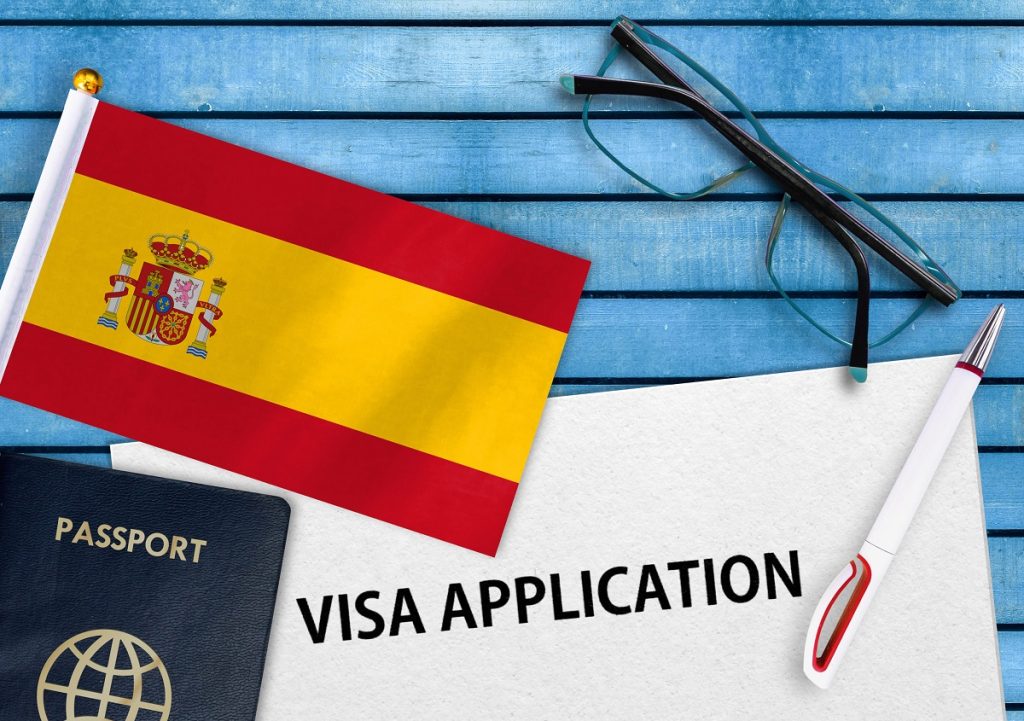Spain’s new digital nomad visa allows digital nomads to live in the country for as long as 5 years and enter with a reasonable monthly income requirement – both unique features for new visas of this type. The country is one of the most friendly to foreign remote workers.
If you like working remotely in Spain so much you want to stay, the Spain digital nomad visa makes it feasible.
As a result of the pandemic accelerating the remote working trend, many countries around the world have refined their visas system and created digital nomad visas to make working there easier. Spain is one of those, and digital nomads consistently rank it the second-best country to stay in, right next to Portugal. The Spain digital nomad visa includes features that make it easy to enter the country and stay there to work for a 1-5 years.
Why is Spain so appealing to digital nomads? Is its remote work visa easy to obtain, and can it be used long-term? What about paying taxes?
Table of Contents
Why Is Spain A Popular Destination For Remote Workers?
The main reasons remote workers love residing in Spain are:
- Low cost of living. Even though the Spanish capital city, Madrid, as well as Barcelona and Valencia, are popular tourist destinations, costs don’t skyrocket seasonally as much as they do in other European countries. The average cost of living in Spain is 44% cheaper than in the US. This includes rent, utilities, groceries, and other essential expenses.
- Internet speed. Spain is known for fast, reliable internet, which is a must for the majority of remote workers. The default offer from Movistar, the country’s best internet service provider, is a whopping 300 Mbps for only 30 EUR (about $32)!
- Tourist attractions. The Royal Palace, Prado Museum (Museo Nacional del Prado), and the Sagrada Familia Basilica are just a few historical landmarks in Spain’s major cities. Moreover, numerous coastal towns are filled with breathtaking beaches.
- Nightlife. Spain has a vibrant nightlife scene originating on fancy cocktail lounges, rooftop bars, beach and boat clubs, etc. If you love red wine, you can try the best Spanish wines, such as Rioja Gran Reserva, Priorat, and Ribera del Duero.

What Are The Advantages Of Doing Remote Work In Spain?
Besides fast and affordable internet, the community aspect is another advantage. As a remote worker, you’re likely to meet many like-minded people who also came to explore Spain while working. Madrid and Barcelona are well-known business hubs that have welcoming expat communities. Plus, you can find numerous digital nomad specific-events across the country.
The Spain digital nomad visa allows you to bring family members with you. What’s better than enjoying top-notch Spanish cuisine together after work?

Does Spain Offer A Digital Nomad Visa?
Spain’s digital nomad visa is available to freelancers, entrepreneurs, and foreign company remote employees. The visa program is called la Ley de Startups and is regulated under the new Startup Law published by the Spanish government.
What Are The Requirements For Digital Nomad Visa In Spain?
To be eligible for the visa, you need to:
- Be a Non-EU/EEA (including European Union countries, Iceland, Liechtenstein, and Norway) citizen
- Be self-employed or work remotely for a non-Spanish company
- Have a clean criminal record
- Have a double Spanish minimum wage, which is currently 1,080 EUR per month, amounting to approximately $1175 (plus 75% for one family member and an additional 25% per person for other dependents)
If you meet all visa requirements, you’ll need to submit the following required documents as a part of the digital nomad visa application process:
- Filled out an application form
- Valid passport copy
- Administration fee payment receipt (80 EUR, which is about $87)
- Evidence of a clean criminal record
- Proof of qualification (work experience, relevant university degree, etcetera)
- Proof of employment at a company that has existed for at least one year plus authorization to work remotely in Spain
- Proof of determined minimum income
- Proof of health insurance (private health insurance)

Which European Country Is Easy To Get Digital Nomad Visa And Feel At Home?
Portugal, Croatia, Italy, Greece, and Estonia are often at the top of the digital nomad-ranked European countries. Remote workers consider ease of obtaining the visa, cost of living, language, administration and bureaucracy, and even online government services availability when ranking the countries.
In general, expats look for places that are easy to settle in and have long-term or extendable visas, and they want to avoid culture shock. These countries tend to check all the boxes for many people. However, it’s worth noting that there is no one-size-fits-all when it comes to “feeling at home.”
For instance, Italy is a popular destination, but expats state it’s difficult to get a visa, open a bank account, and deal with the local bureaucracy. For Estonia, the main downsides are housing and language.
Do I Need To Register My Visa In Spain?
Spanish digital nomad visa holders do not need to register the visa upon arrival. Once your visa is approved and you receive it at your local consulate/embassy in your home country, you’re free to start using it.
Alternatively, you can enter Spain on a tourist visa and apply for a digital nomad visa there, but there is still no registration requirement for the visa.
What Is 5-Year Digital Nomad Visa In Spain?
The Spain digital nomad visa is valid for up to a year, and it’s extendable for up to five. The conditions for long-term renewal are not leaving the country for more than six months per year and the continuous ability to work remotely during your stay.
Do Digital Nomads Pay Tax In Spain?
Americans do not pay income tax in Spain due to the US-Spain Tax Treaty. Digital nomads from other countries may be required to pay the Non-Resident Income Tax and have certain tax benefits, such as reduced tax rates.



